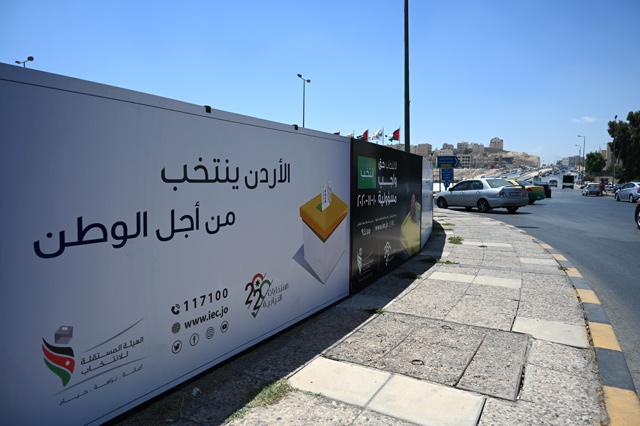- Local News
- Tue-2020-11-10 | 02:48 pm

Nayrouz News Agency :
Jordanians will head to the polling booths on Tuesday to elect representatives to the 19th Lower House of Parliament for the next four years.
Around 4.6 million citizens are eligible to vote to elect 130 MPs, including 15 seats that are dedicated to women via a quota system that was introduced in 2003. Women could also win additional seats depending on the votes they collect.
There is a total of 1,824 polling stations, housing 8,080 ballot boxes, according to the Independent Election Commission (IEC), which supervises the elections.
IEC Spokesperson Jihad Momani told The Jordan Times that the final count of the lists that were registered in preparation for the upcoming elections stands at 294.
The total number of registered candidates stands at 1,674, including 360 women, according to Momani.
The polling stations will start receiving citizens from 7am until 7pm, according to Momani, adding that voting "could be extended for an additional two hours if needed”.
Some 1,350 reporters representing 135 local and international media outlets will cover the elections,
Momani added.
Meanwhile, Police Spokesperson Maj. Amer Sartawi told The Jordan Times that the Public Security Directorate (PSD) had dispatched some 53,000 police officers on Monday in different locations in the Kingdom to safeguard citizens during the elections.
Local media outlets reported on Monday that the PSD plans to deploy drones for aerial surveillance to make sure that there would be no violations related to huge gatherings during the election period.
Minister of Political and Parliamentary Affairs Musa Maaytah had said recently that efforts will be exerted to secure the success of the Parliamentary elections by involving all citizens in the election process.
"We would like to emphasise that Parliament is the most important Constitutional body, whose role is to monitor the government’s performance and draft laws,” Maaytah said.
The government is aiming through its many campaigns to target everyone, including youth, to take part in the elections, the minister had said.
The IEC had announced that elections to the 19th Parliament would be held on November 10, following a Royal decree in July directing the concerned authorities to hold parliamentary elections in accordance with the provisions of law. The Kingdom is divided into 23 constituencies.
The IEC also announced a string of procedures to ensure the success of the election process while at the same time ensuring the safety and security of the citizens amid the increase in the number of COVID-19 cases.
The measures include testing all the officials and other individuals who will be stationed at the polling centres for COVID-19 ahead of the elections to ensure that no one is tested positive for the coronavirus, as well as distributing pens to each voter for health and safety purposes.
Al Rai Editor-in-Chief Rakan Saaideh in an op-ed published on Monday said that it is "our duty as responsible citizens to take part in this democratic process”.
"The participation in the election process stems from our national sense and duty as individuals and groups to ensure the sustainability of the existence of the constitutional parliamentary entity,” Saaideh wrote.
Meanwhile, several citizens took to social media to comment on the elections.
Ellena Nasser wrote: "Taking part in the elections is a national duty for everyone as long as we believe in reforms and change.”
"People choosing not to vote will simply lose their rights as citizens to contribute in the reform process that would work to fight corruption and ensure safety, security and the respect of law,” Nasser tweeted.
Another citizen named Oroub tweeted: "Take part in the elections and elect the candidate whom you think represents you for your sake and the sake of our future”.









